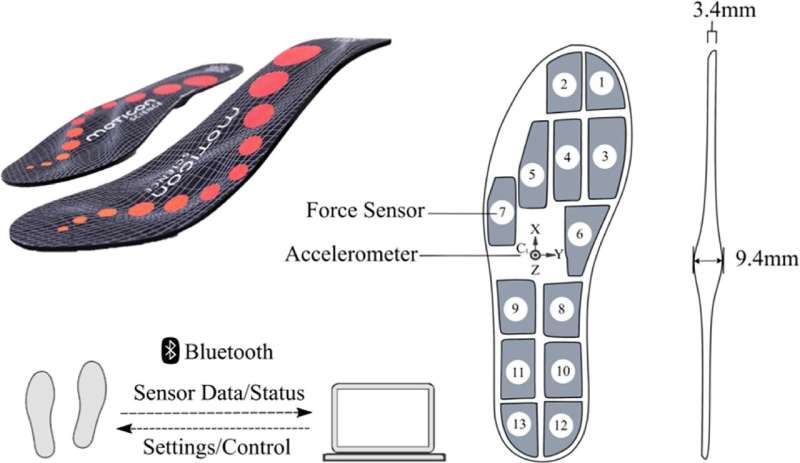Efficient fall detection based on smart insoles

Fall detection is a typical application of both medical expert systems and wearable expert systems. There are four primary types of falls, i.e., left-sided horizontal, right-sided horizontal, supine, and prone, whereas most of the previous studies and commercial systems focus on distinguishing fall or not.
Accurate and rapid multi-directional fall detection can be used to develop timely inflatable airbag protection in the fall direction and help doctors shorten the reaction time to assess the severity of particular joint injuries.
In a study published in Expert Systems with Applications, the research group led by Prof. Dai Houde from Fujian Institute of Research on the Structure of Matter of the Chinese Academy of Sciences reported a novel fall detection methodology based on smart insoles and a long short-term memory (LSTM) framework with a trained referencing denoising auto-encoder (RDAE). The researchers employed a pair of wireless in-shoe insoles of which each side is equipped with 13 plantar pressure sensors and a tri-axial accelerometer to capture comprehensive spatial-temporal gait parameters.
The proposed RDAE-LSTM network provides a reliable testing result in classification, with 98.6% accuracy and 8.7 ms response time for determining fall directions, demonstrating a more convincing performance than that of other algorithms.
This methodology is an unobtrusive choice for users whose daily life is not affected by the fall detection device. The RDAE-LSTM model was proven to accurately and quickly recognize falls in four directions for the unbalanced fall detection dataset.
Source: Read Full Article
